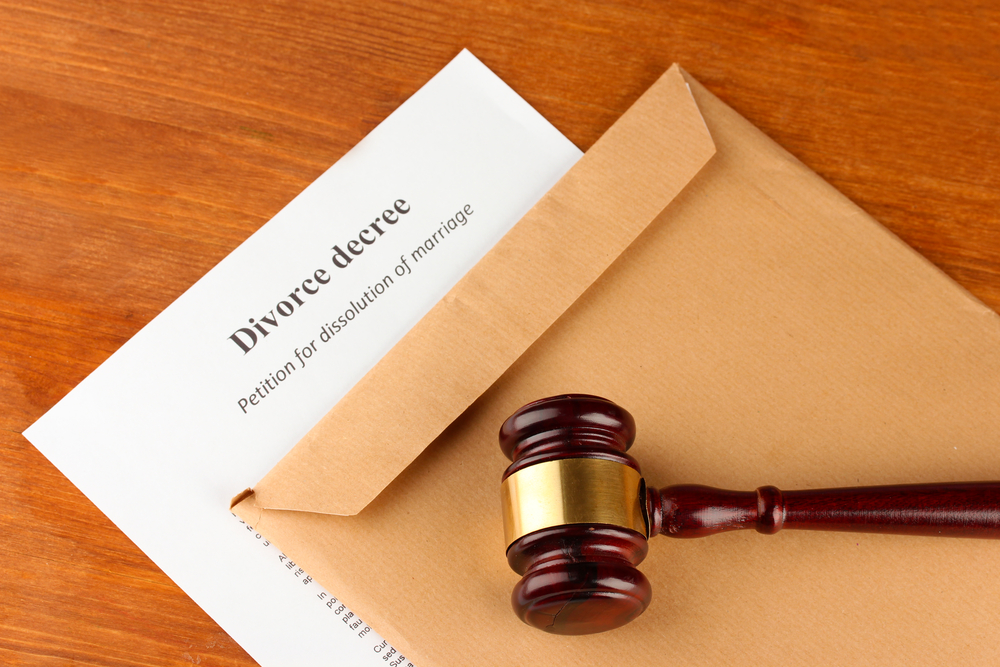If I Am Served Divorce Papers, Do I Have to Sign Them? Understanding Your Legal Rights

Receiving divorce papers can be a stressful and emotional experience. You may be confused, angry, or simply unsure of your legal responsibilities. One of the first questions people ask when served is, “If I am served divorce papers, do I have to sign them?” The short answer is no—you don’t have to sign. But the long answer requires understanding the legal process, your rights, and the consequences of inaction.
Whether you’re the spouse initiating the divorce or the one on the receiving end, knowing your rights and options can save you from costly legal mistakes. In this article, we’ll break down the meaning of being served, what happens if you don’t respond, and how working with a qualified attorney can protect your interests during a divorce.
What Does It Mean to Be Served Divorce Papers?
Being “served” with divorce papers means that your spouse has filed a petition for divorce and the legal documents have been formally delivered to you. These papers typically include:
- The divorce petition (also called a complaint for divorce)
- A summons or notice requiring a response
- Information about court hearings or mediation
The act of serving papers ensures due process, which means you have been properly informed of the legal action being taken against you. In most states, divorce papers must be delivered by a sheriff, process server, or in some cases, certified mail.
Do You Have to Sign the Divorce Papers?
Legally speaking, if i am served divorce papers do i have to sign them? No—you are not obligated to sign anything right away. However, not signing or responding doesn’t make the problem go away. It may, in fact, hurt your case.
By not signing, you are not preventing the divorce from moving forward. Courts can grant a divorce with or without your cooperation, especially if your spouse has followed the proper legal procedures.
What Happens If You Ignore the Papers?
If you choose not to sign or respond to the divorce papers within the deadline (usually 20 to 30 days), your spouse can request a default judgment. This means:
- The court may proceed without your input
- You lose the chance to contest asset division, alimony, or child custody
- The judge may grant your spouse everything they requested in the petition
In essence, ignoring divorce papers is often the worst move you can make. Responding within the legal timeframe gives you the opportunity to be heard and participate in decisions that affect your future.
Should You Sign the Divorce Papers?
There’s a difference between being served and agreeing to the terms. When you’re served, you can choose to:
- Sign an acknowledgment of receipt (confirming you’ve received the papers)
- Respond with an Answer, which states your agreement or disagreement with the divorce terms
- File a Counterclaim if you have specific requests of your own
You should never sign anything without understanding what it means legally. In many cases, signing may imply agreement with terms you do not support—such as custody arrangements, asset division, or spousal support. This is why speaking to a divorce attorney is essential before signing anything.
Contesting the Divorce vs. Uncontested Divorce
Understanding the type of divorce you’re facing helps determine your next move:
- Uncontested Divorce: Both spouses agree on major issues (property, custody, alimony). Signing papers may be a formality, but legal review is still advised.
- Contested Divorce: You disagree with the terms of the divorce. In this case, you’ll want to respond formally and possibly go to court to present your case.
Even in an uncontested divorce, you have the right to negotiate terms and ensure your best interests are protected.
Can You Stop a Divorce by Not Signing?
A common misconception is that refusing to sign divorce papers can stop the divorce. Unfortunately, this is not true. Divorce is a legal process initiated by one party. As long as your spouse meets the court’s requirements—such as proper service—the process will continue.
In fact, refusing to sign can backfire, resulting in:
- Delayed resolution
- Additional legal costs
- A ruling that’s less favorable to you due to lack of participation
Your best strategy is to engage with the process, not ignore it.
Protecting Your Rights After Being Served
After being served, take the following steps:
- Read the Papers Carefully: Understand what your spouse is asking for in terms of custody, property, and finances.
- Consult an Attorney: A family law attorney can explain your rights, help you craft a response, and represent you in court if needed.
- Respond On Time: Missing the response deadline can result in a default judgment.
- Prepare Financial Records: Begin gathering documents such as income statements, property deeds, and bank records.
- Consider Mediation: If you and your spouse are open to compromise, mediation can help resolve issues without going to trial.
Remember, just because you didn’t initiate the divorce doesn’t mean you have to be passive in the process.
Why Legal Representation Matters
Navigating a divorce—especially a contested one—can be legally and emotionally overwhelming. An experienced attorney will:
- Review the divorce petition for fairness
- Help you respond strategically
- Represent your interests in court
- Negotiate settlements regarding property, custody, and support
Whether you’re concerned about parenting time or protecting your assets, an attorney ensures your voice is heard during the proceedings.
Final Thoughts
To summarize: If you are served divorce papers do you have to sign them? No—but you do need to respond. Ignoring the papers or refusing to sign them won’t stop the divorce from happening and can actually lead to worse outcomes for you.
Instead, take action. Read the papers, consult a qualified divorce lawyer, and make informed decisions. Protecting your future starts with understanding your rights and getting the support you need during this challenging time.